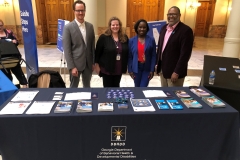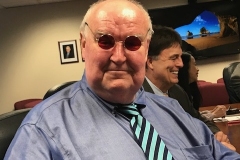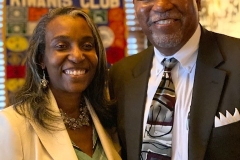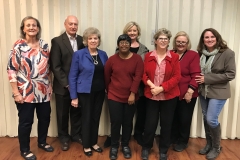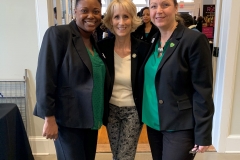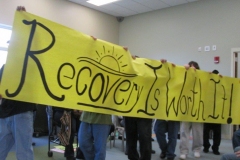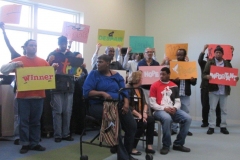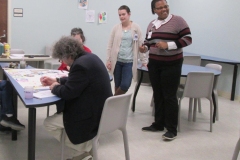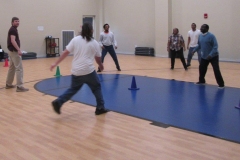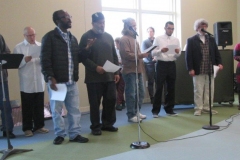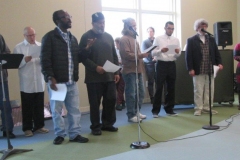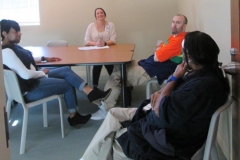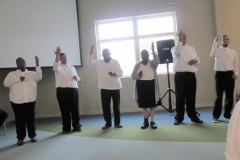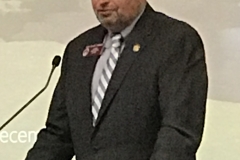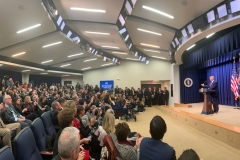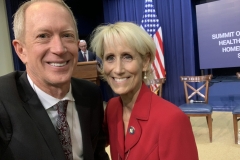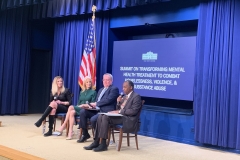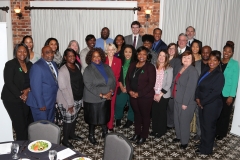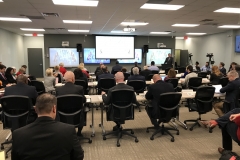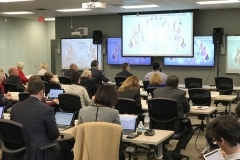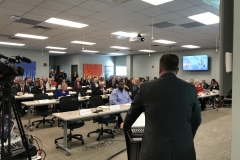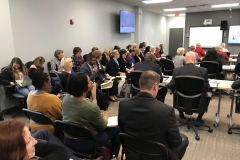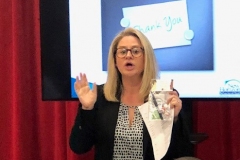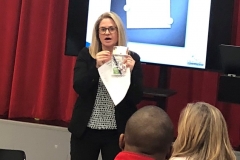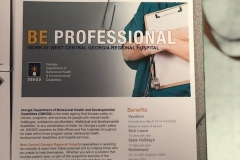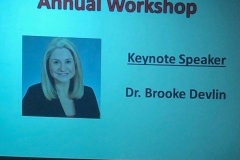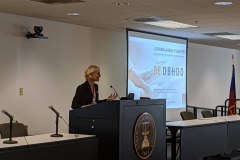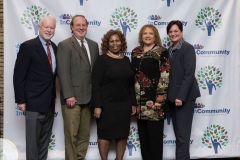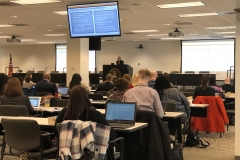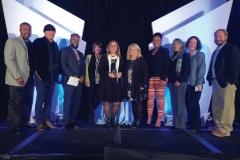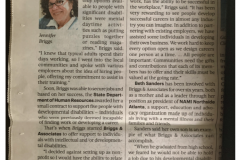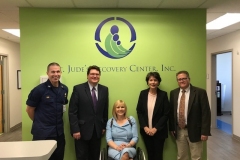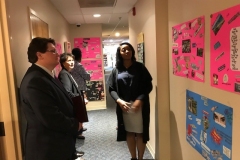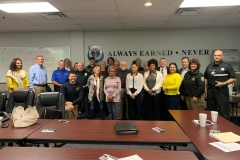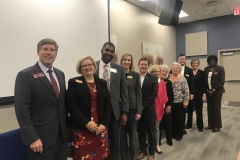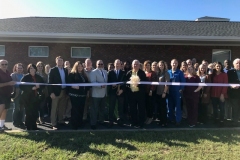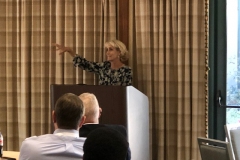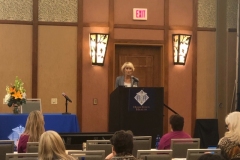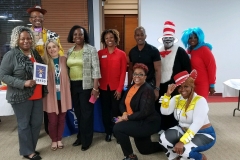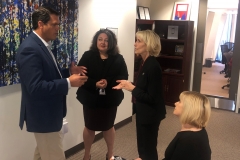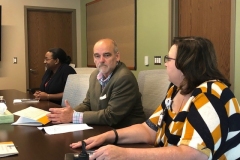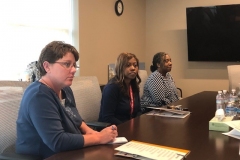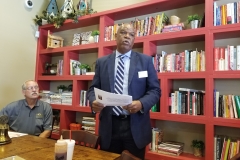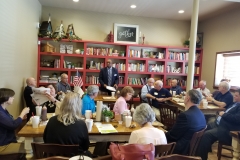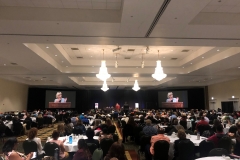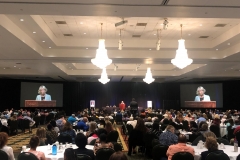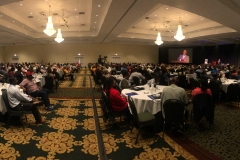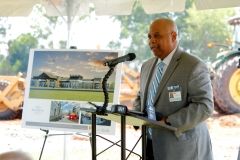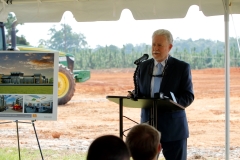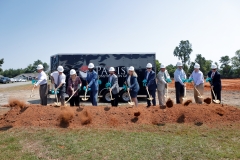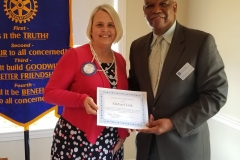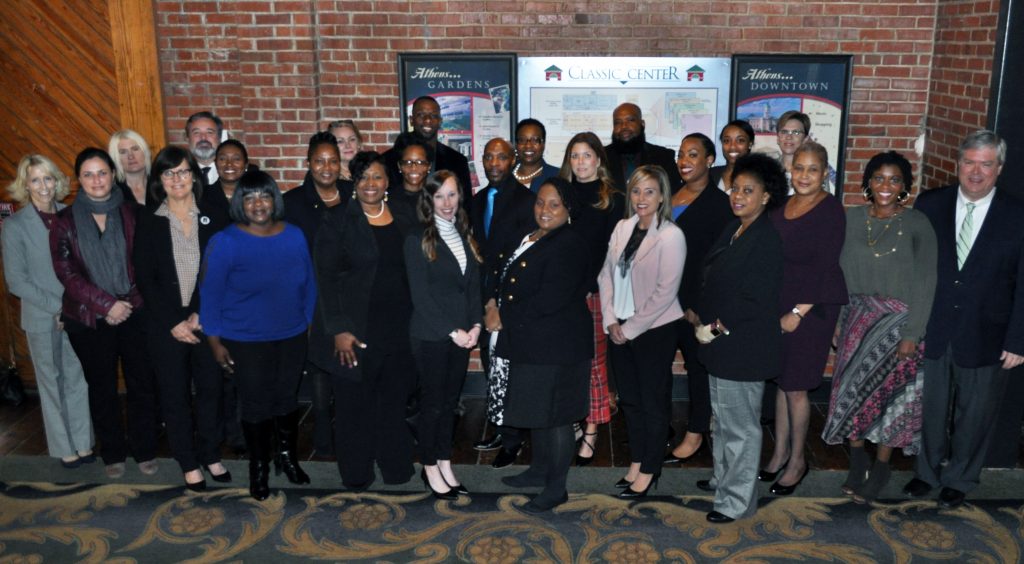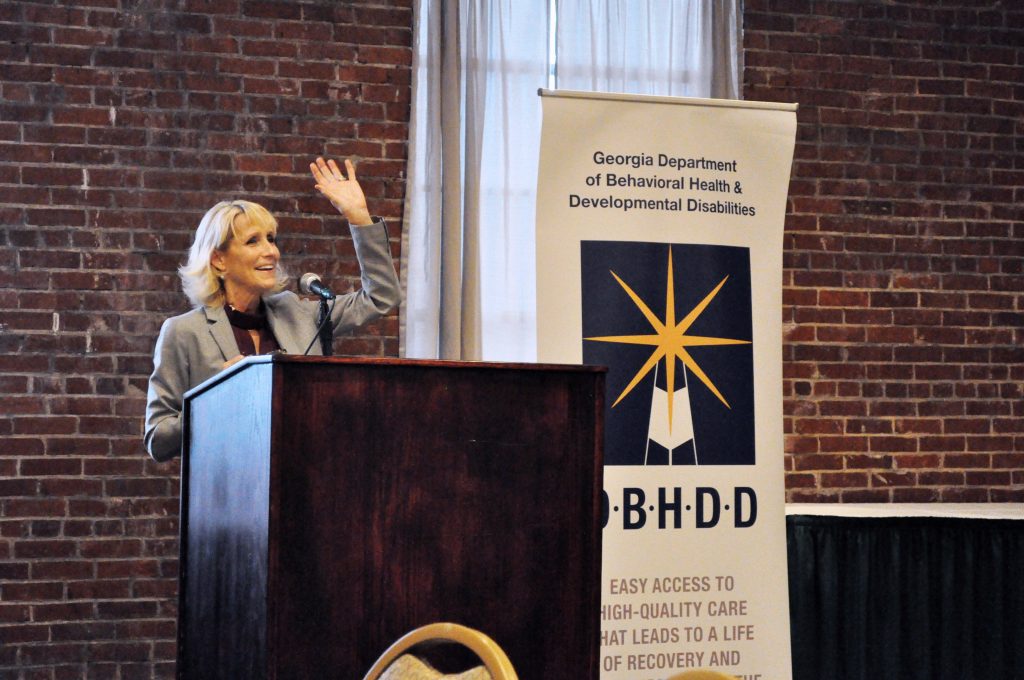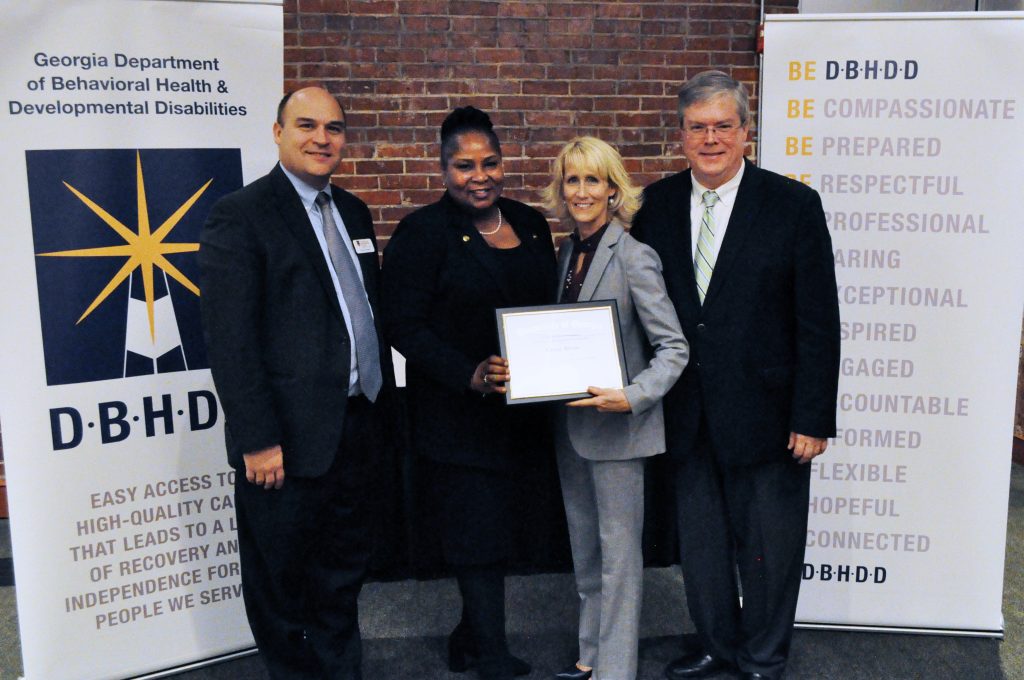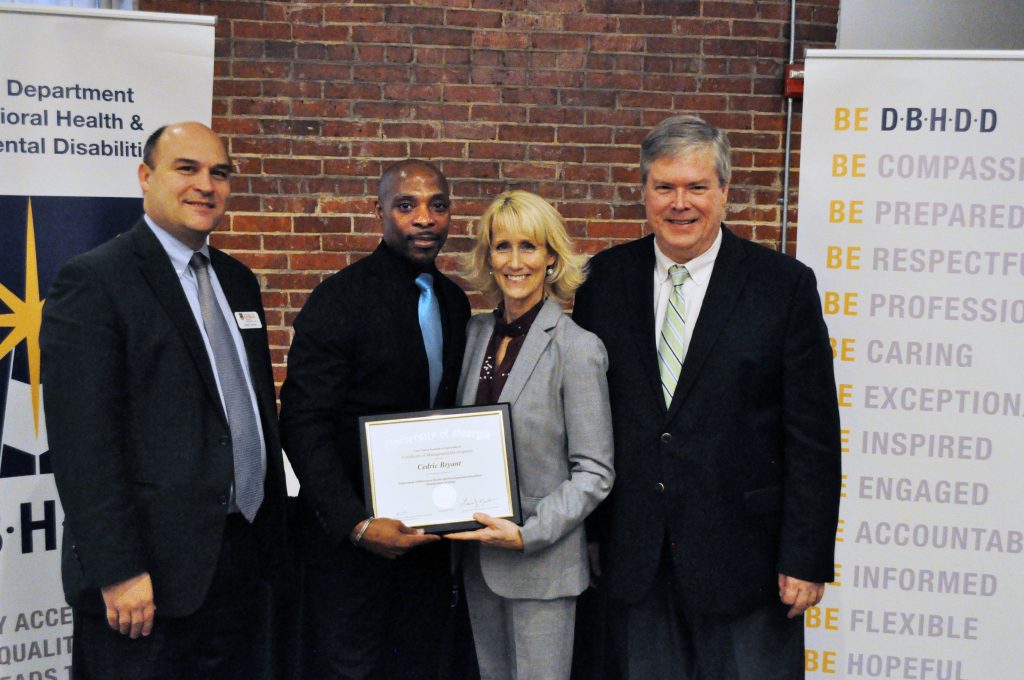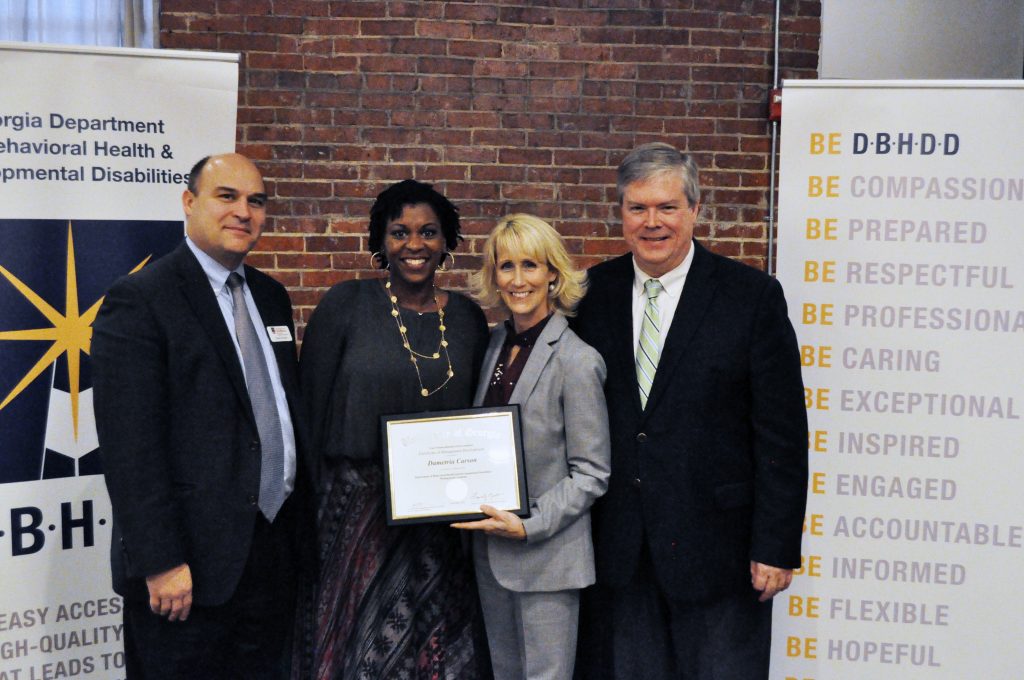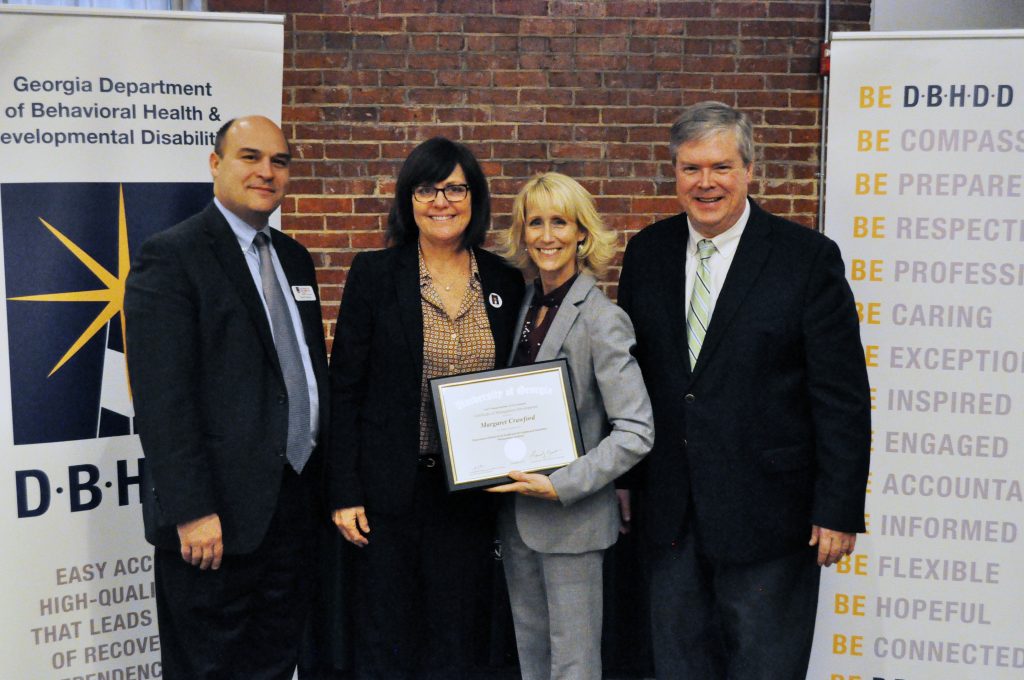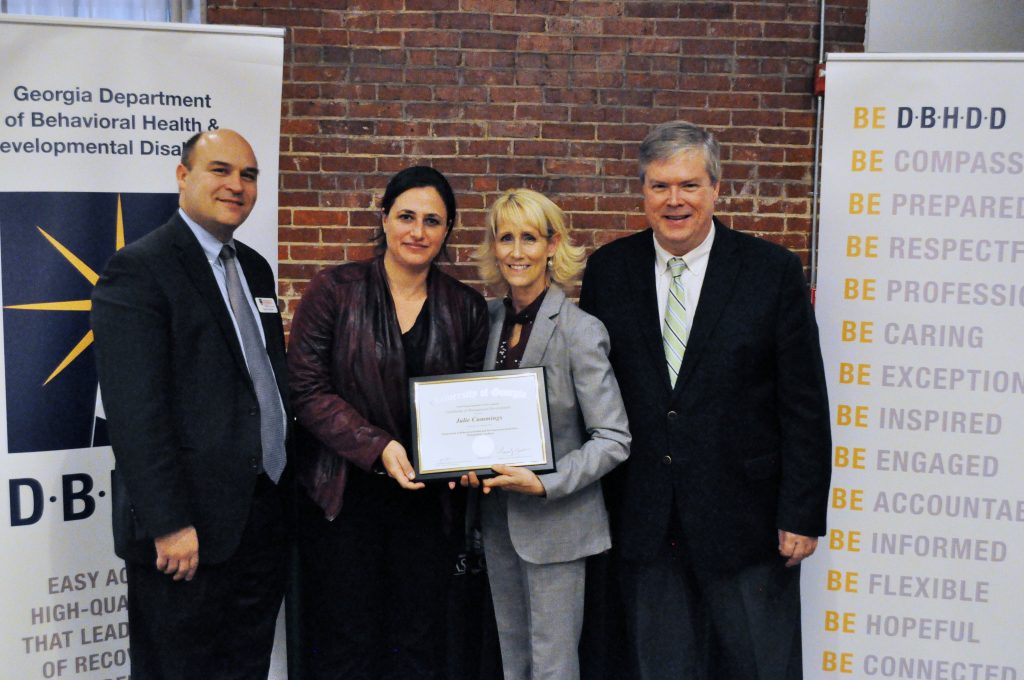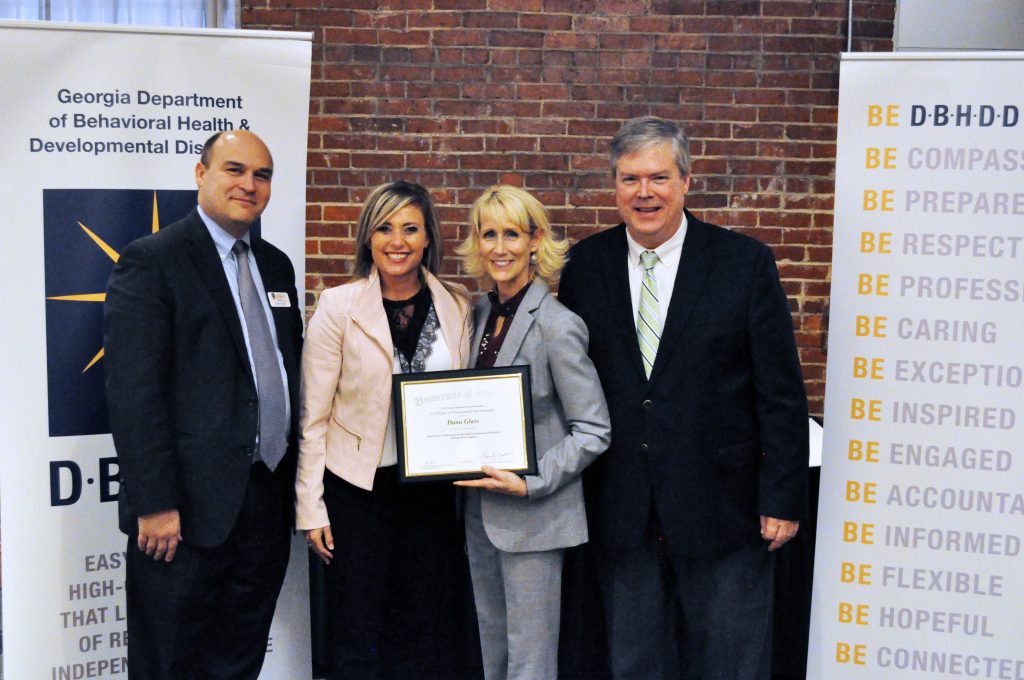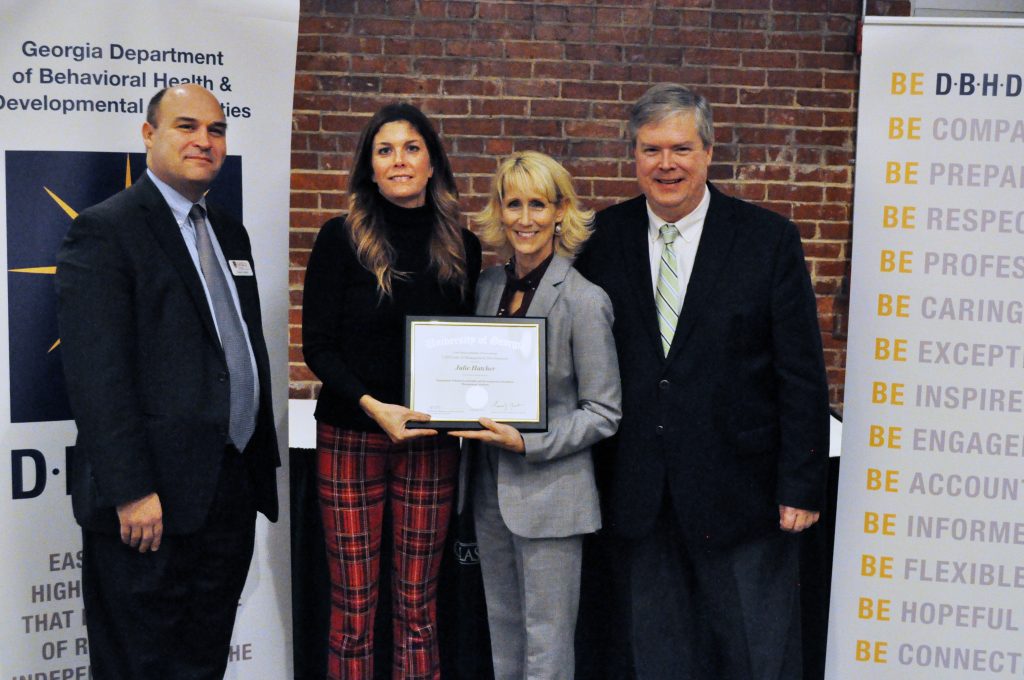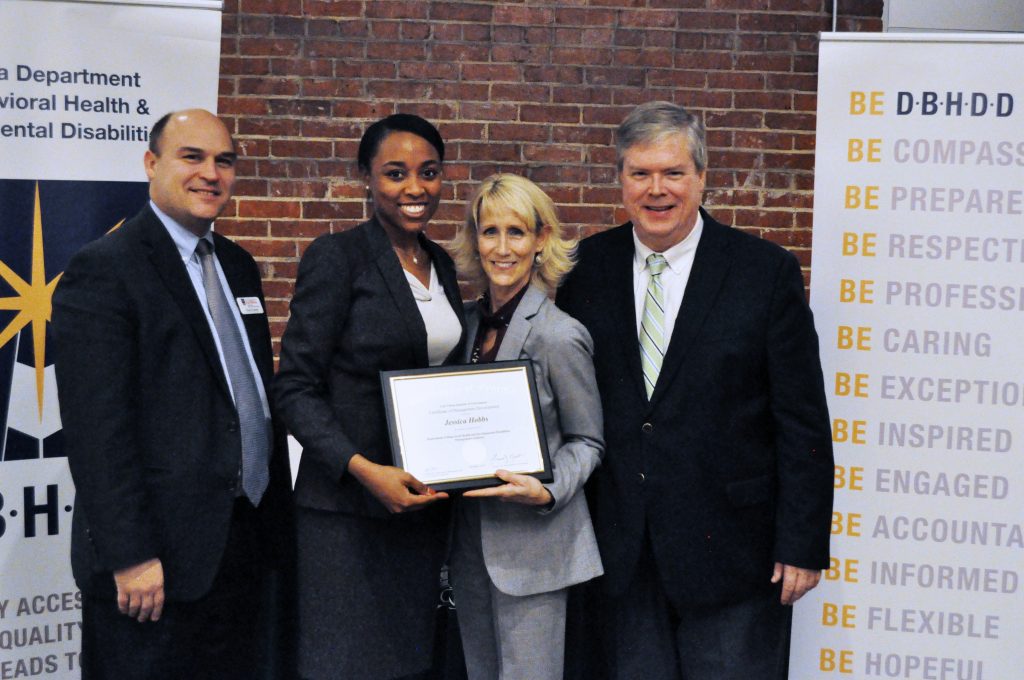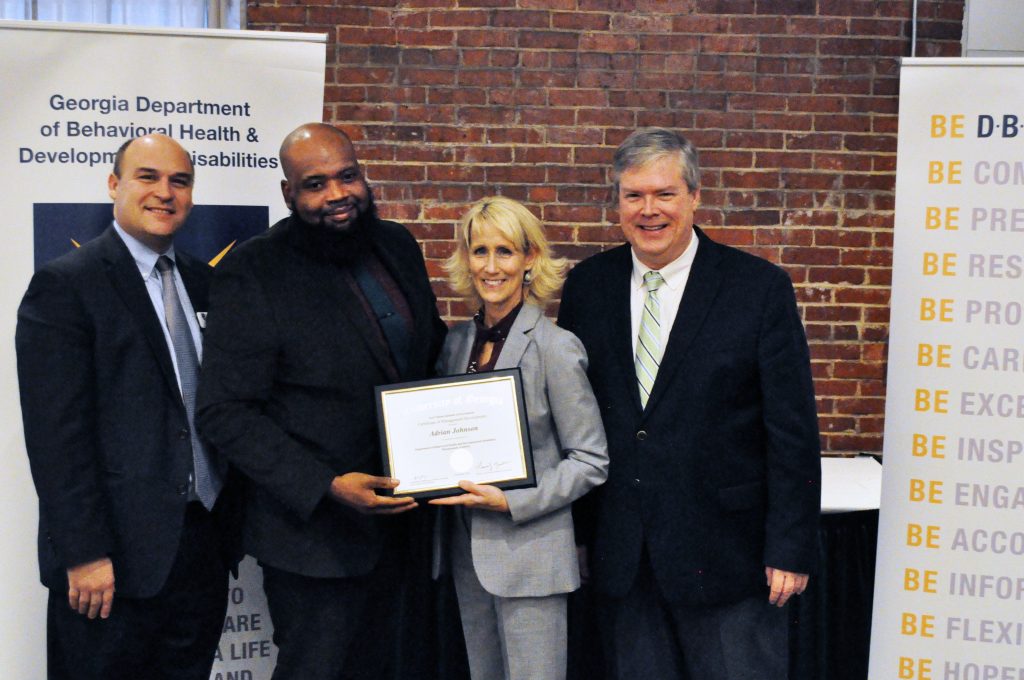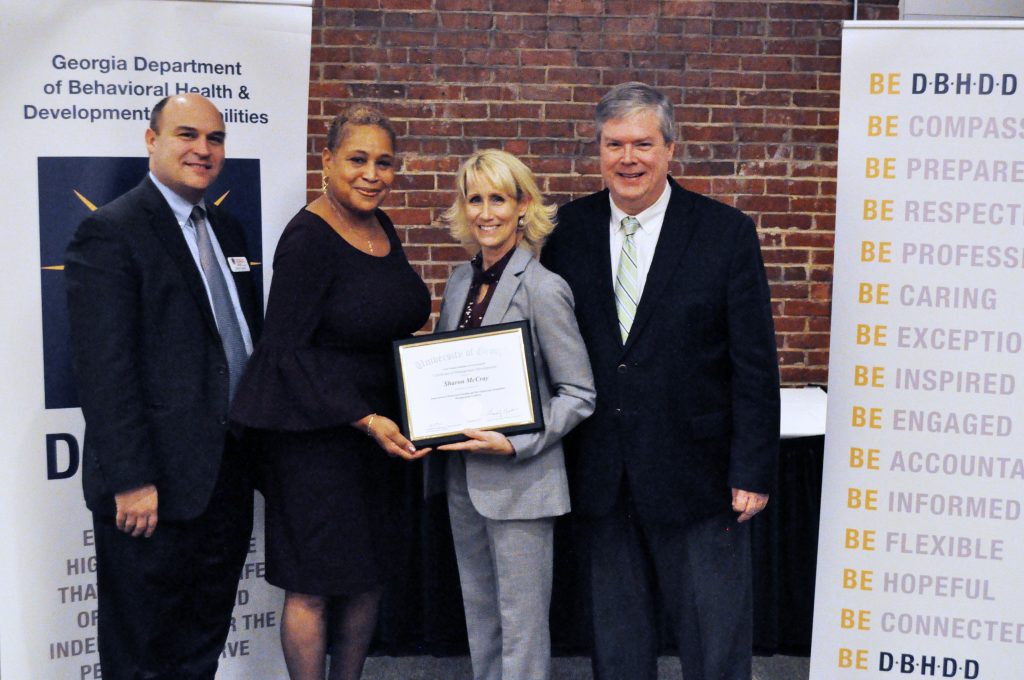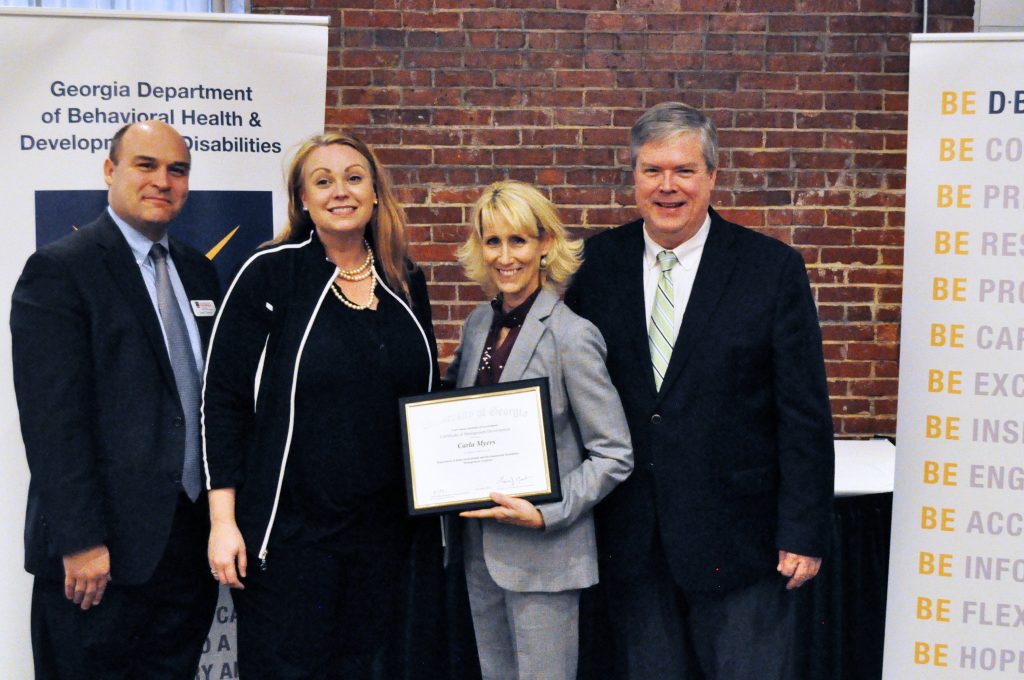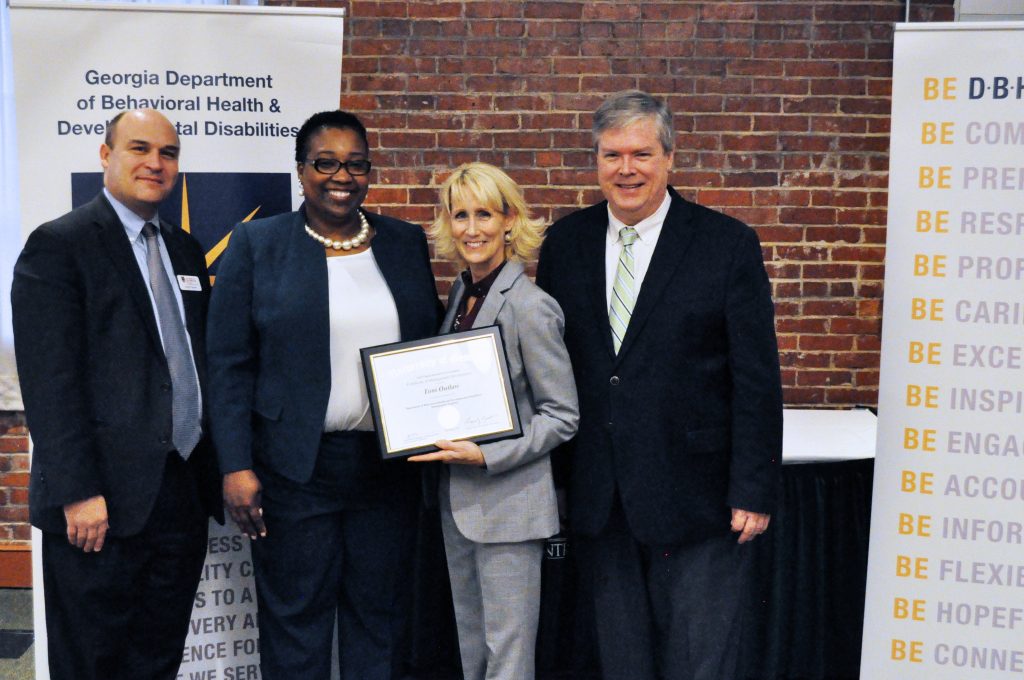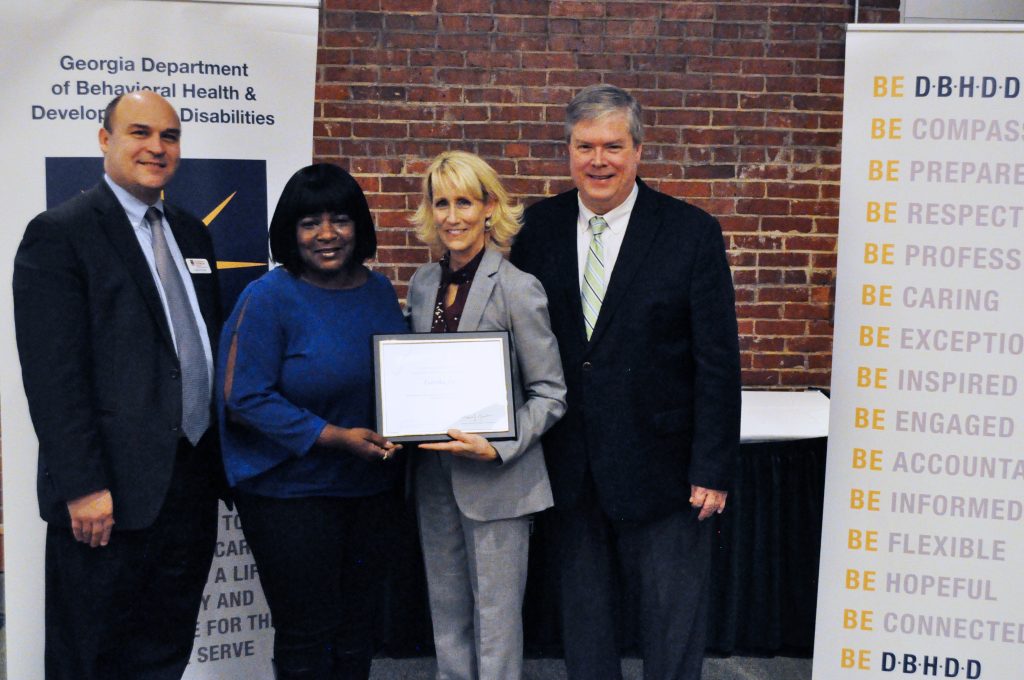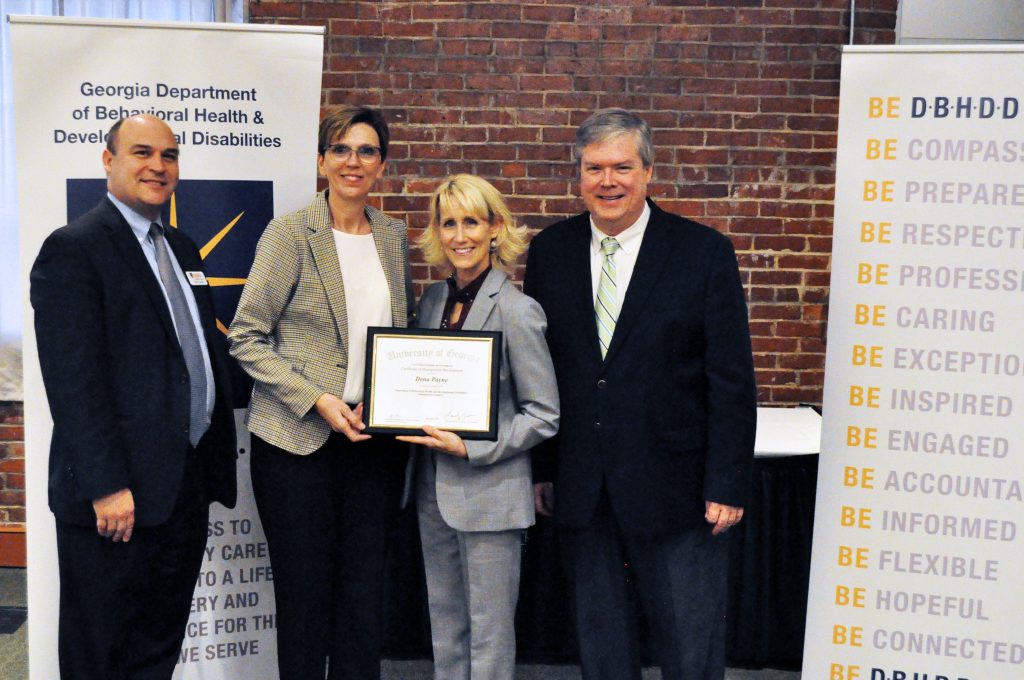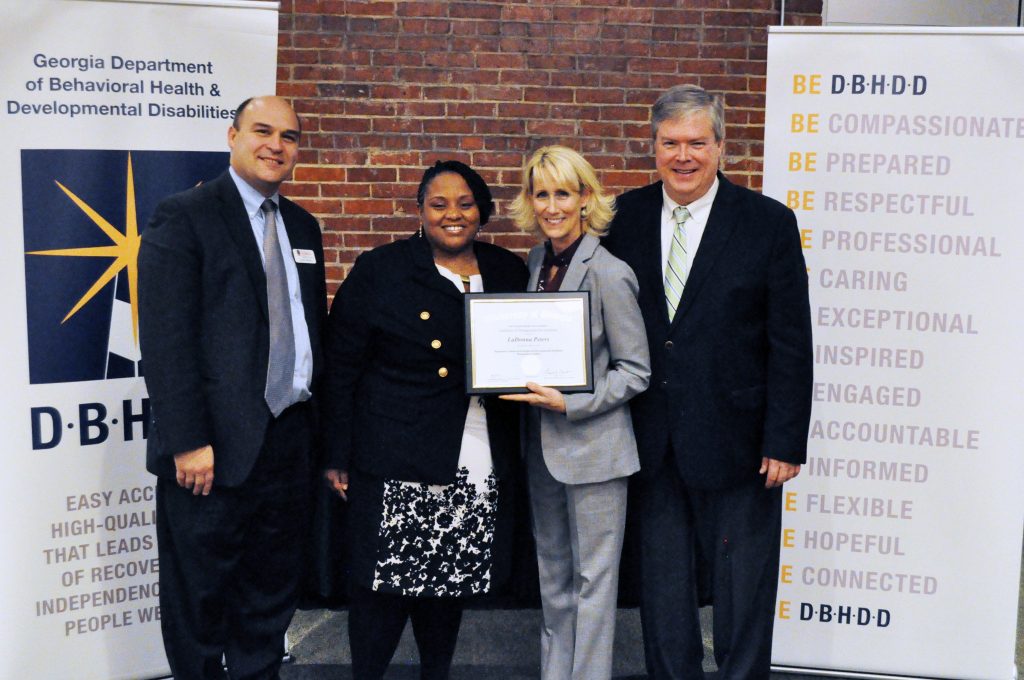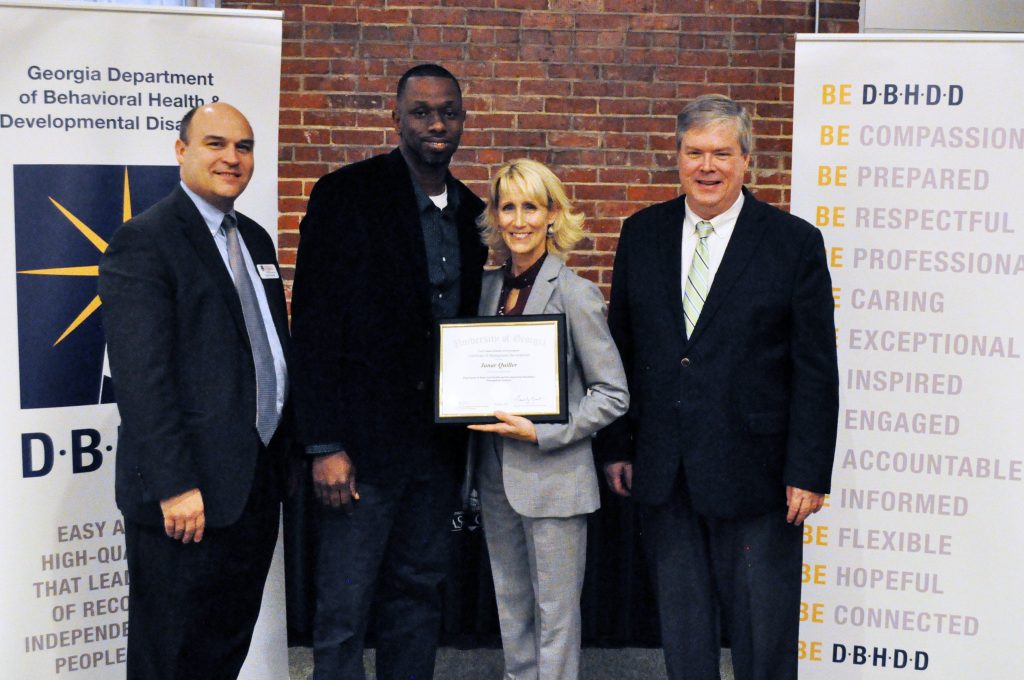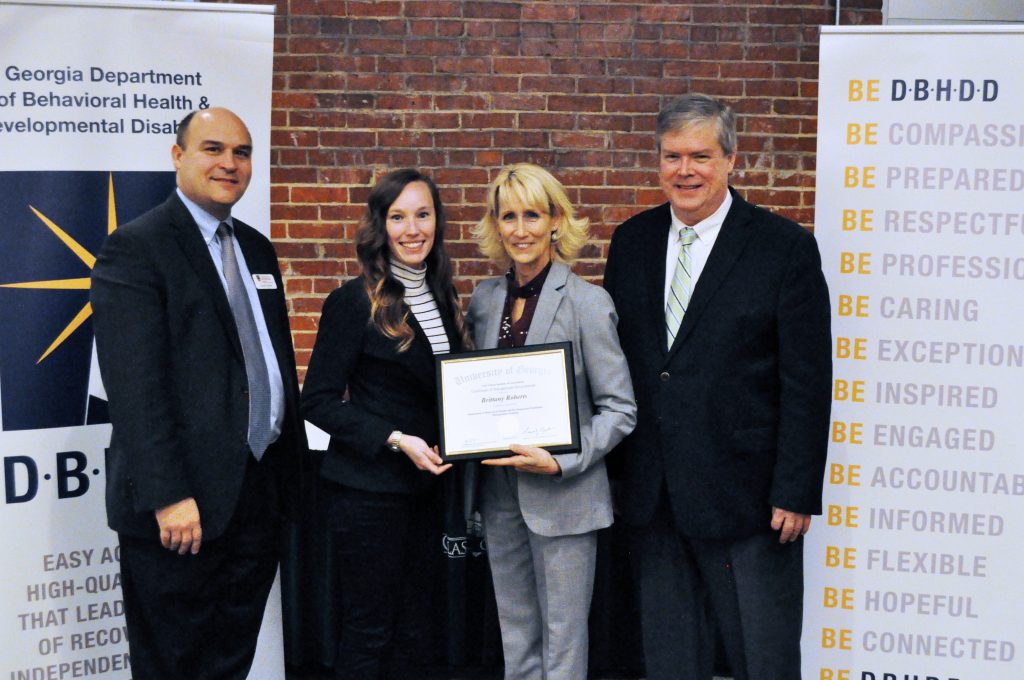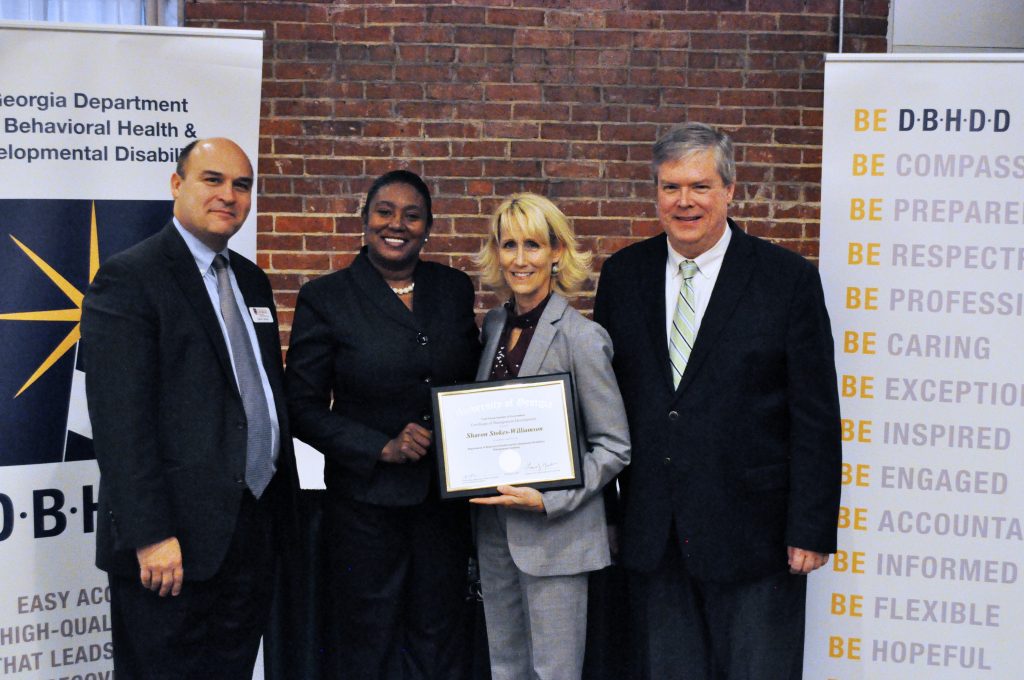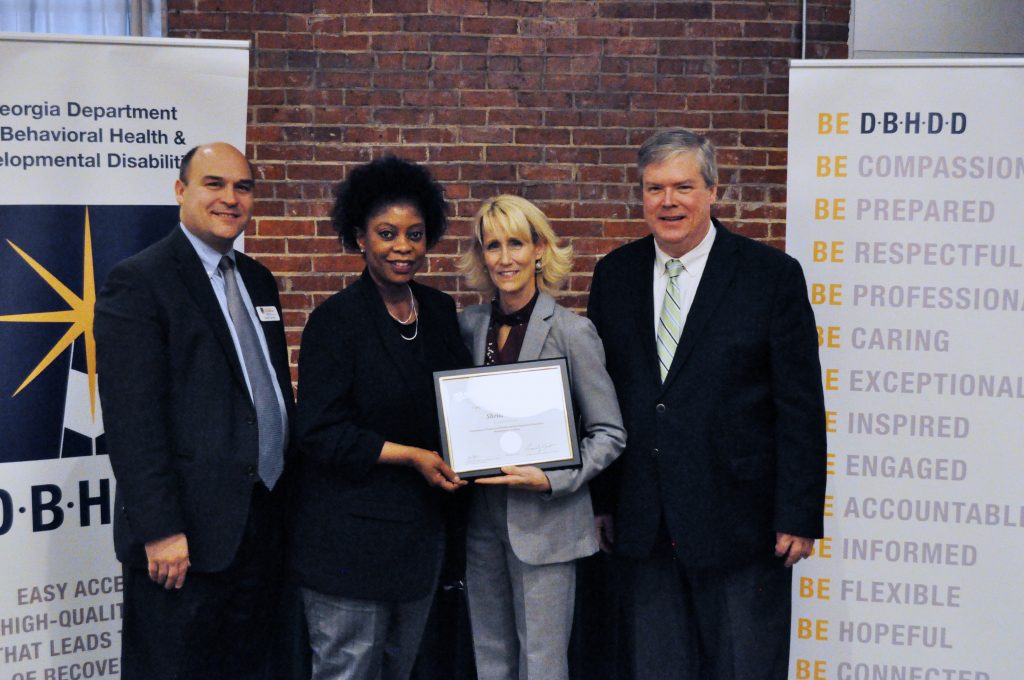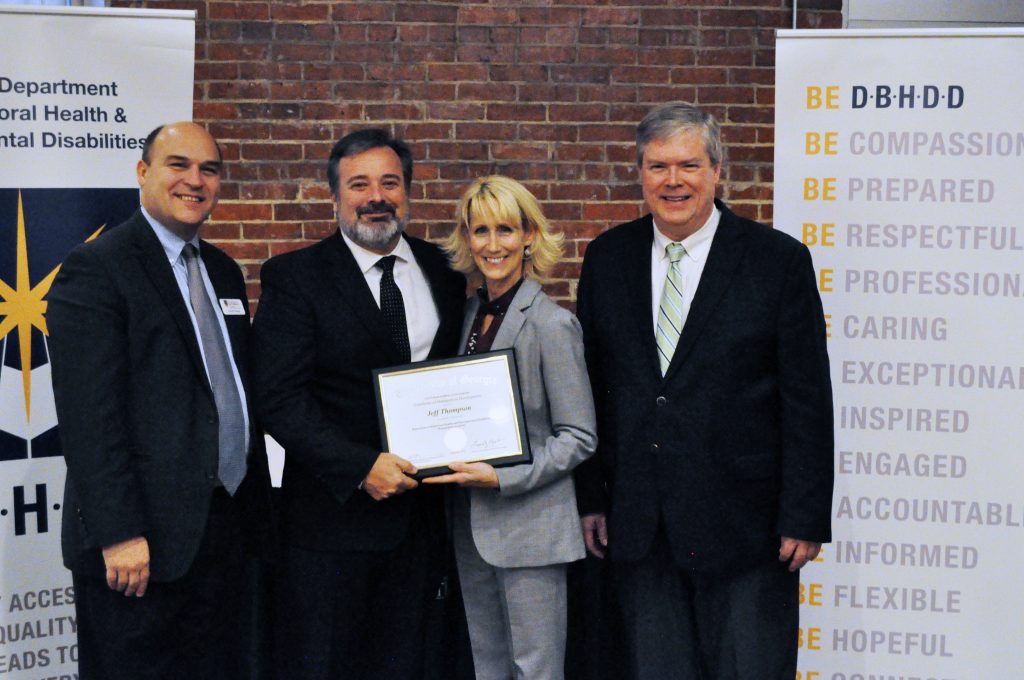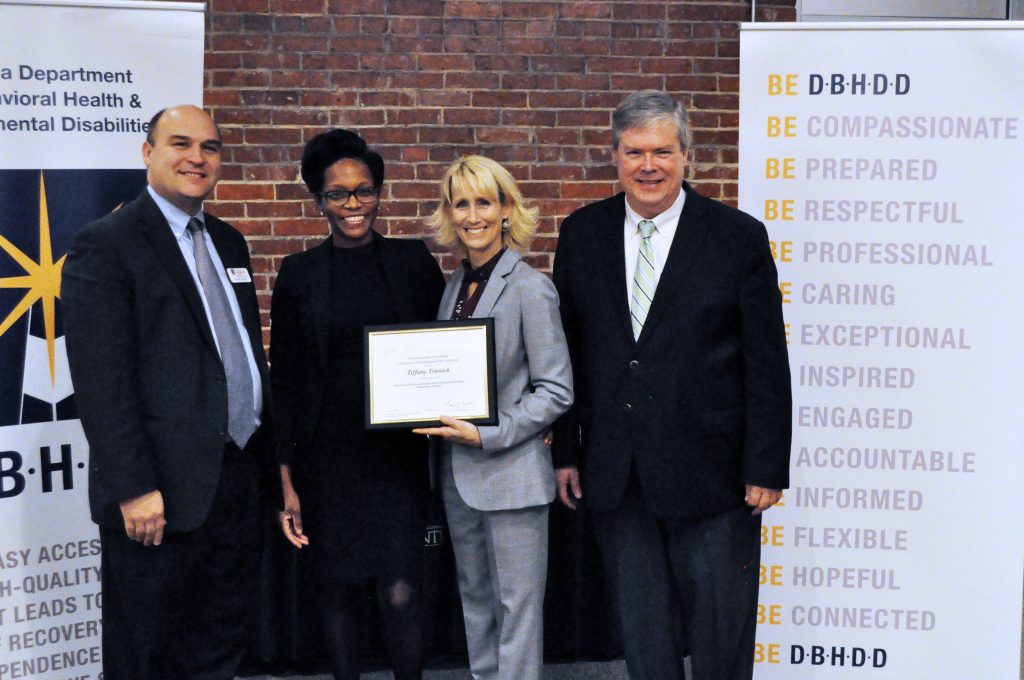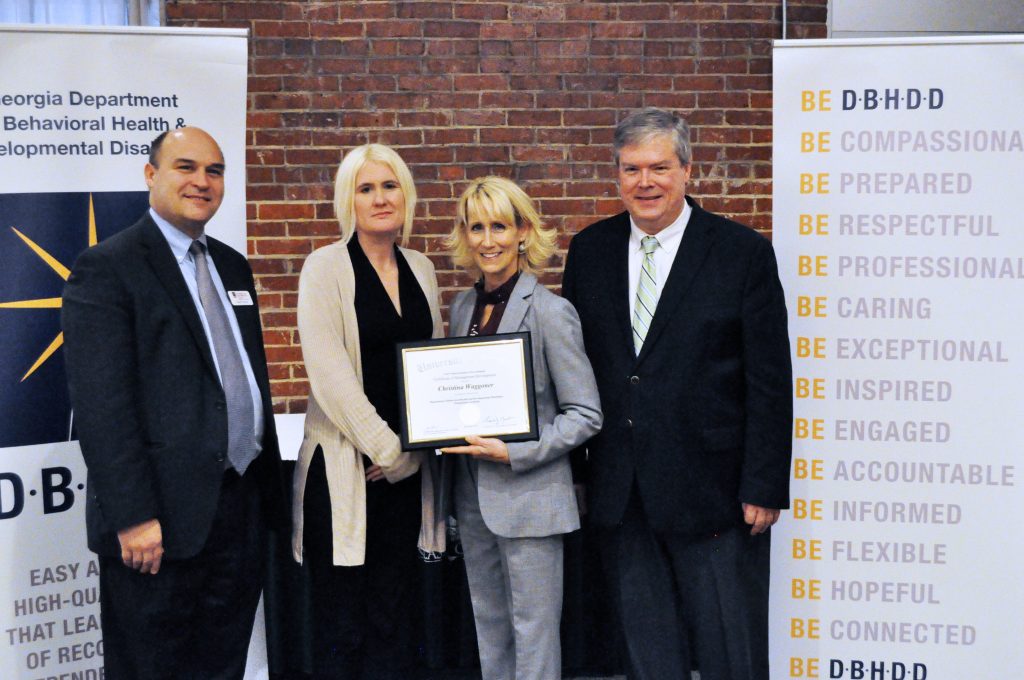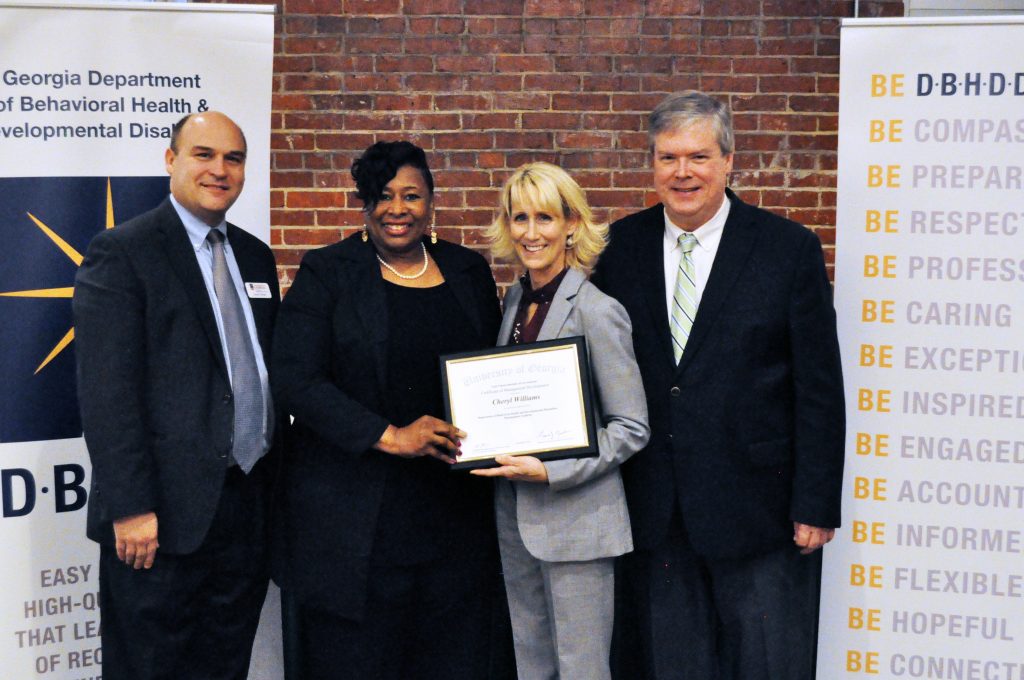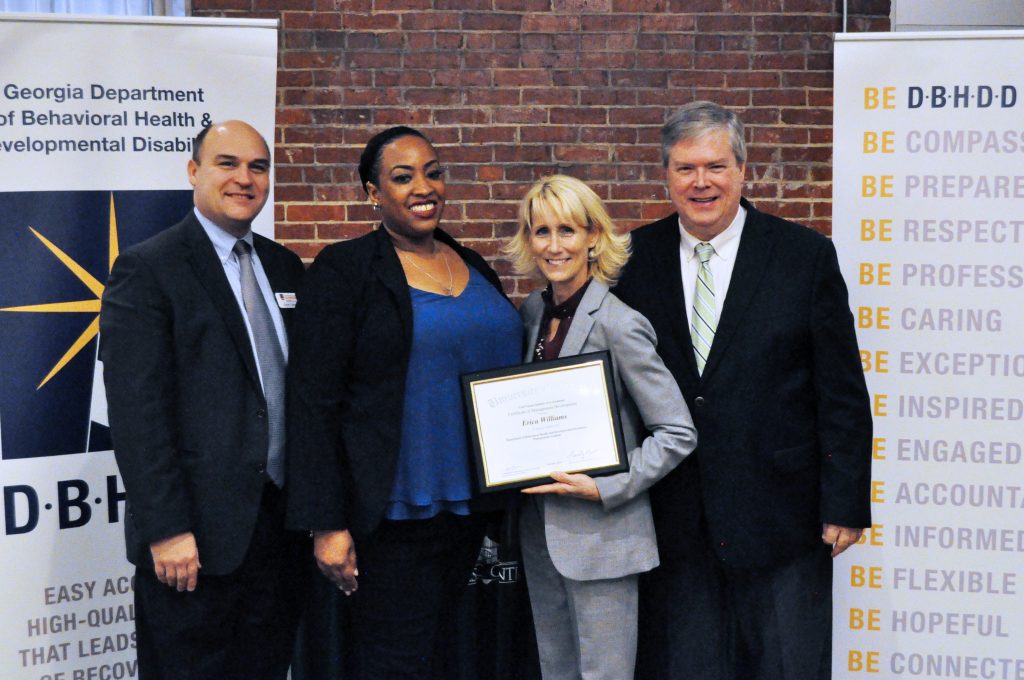Category: Uncategorized
DBHDD On The Move January 2020
DBHDD On the Move December 2019
DBHDD On The Move November 2019
2019 Behavioral Health Symposium
To view the photos from this years Behavioral Health Symposium click here: https://itoobriscoe.shootproof.com/gallery/10570566/home
DBHDD On the Move August 2019
Spring is in the Air
Spring Greetings!
On Tuesday, the 2019 Legislative Session adjourned sine die. It was a very successful session for DBHDD and the people we serve. The General Assembly continues to acknowledge and support the work we are doing on behalf of vulnerable Georgians by providing millions of dollars in new funding to support items such as the Apex Program (DBHDD’s school-based mental health program), additional NOW and COMP waiver funding, crisis infrastructure and development, substance use disorder treatment, and the continued build-up of vital core services across our state. While we tracked many pieces of legislation, two key actions will have notable impact our department: the creation of the Behavioral Health Innovation and Reform Commission and the new Office of Health Strategy and Coordination within the Office of the Governor.
The Office of Health Strategy and Coordination is empowered to bring together experts from academia and industry along with elected and appointed leaders in an information-sharing forum that will explore new ideas and evaluate the effectiveness of previously enacted and ongoing health programs. The office will collaborate with both health related and non-health related agencies. It also has the authority to evaluate proposed certificate of need (CON) and State Health Benefit Plan updates. We welcome the opportunity to accelerate Georgia’s focus on data-based decision-making.
During the session, I had the opportunity to work jointly with Governor Kemp, Lt. Governor Duncan, Speaker Ralston, and Rep. Kevin Tanner on the Behavioral Health Innovation and Reform Commission initiative. The commission is charged with conducting a comprehensive review of Georgia’s behavioral health system and making recommendations for innovation.
In the enabling legislation, the General Assembly recognized the significant transformation that our system has achieved over the last decade. I am very proud of this transformation and of the efforts of our team of providers, advocates, and DBHDD staff who have led the way for dramatic improvements in our system, the array of services we offer, and the quality of care we provide to the people we serve.
As we move toward the conclusion of the settlement agreement with the U.S. Department of Justice, the commission will play an important role in the health care environment of the future. It serves as evidence that Georgia can exit federal oversight and adopt local strategies for transparency and accountability. As we embrace our next phase of system growth and development, we have a great opportunity to serve by sharing our expertise and knowledge of evidence-based practices. The commission’s work will stretch over several years and will be composed of 25 members, including a wide range of experts across human service systems. Appointments will be made by the Governor, Lt. Governor, Speaker, and Chief Justice of the Supreme Court. Among those represented on the commission will be psychiatrists, providers, community service boards, advocates, clinicians, law enforcement, educators, judges, and more. I, along with other commissioners, will serve as an ex-officio member.
The commission will examine conditions, needs, and challenges in Georgia, as well as best practices and experiences (including what is working in other states), and report annually to the Governor, Lt. Governor, and Speaker. I look forward to working with the members of the commission. I am hopeful that those who are selected to serve will be forward-thinking in their approach to future services and support the investments required to deliver quality care.
This is an exciting time in the healthcare landscape, and I am grateful for opportunities to embrace innovation and lead Georgia’s public safety net into the ever-evolving future environment.
You can read more about the purpose and scope of the commission here.
Judy Fitzgerald Commissioner, Georgia Department of Behavioral Health and Developmental Disabilities
DBHDD on the Move – Feb 2019
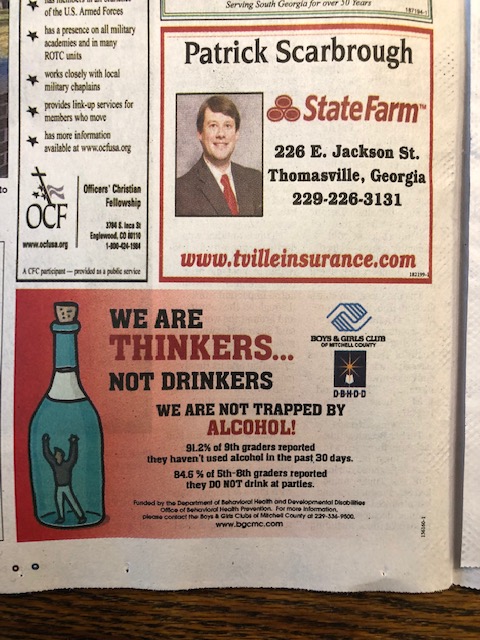
Office of Behavioral Health Prevention ad featured in the Thomasville Times-Enterprise. 
The Annual Mayors Motorcade was featured in the January edition of the Georgia Municipal Association publication. 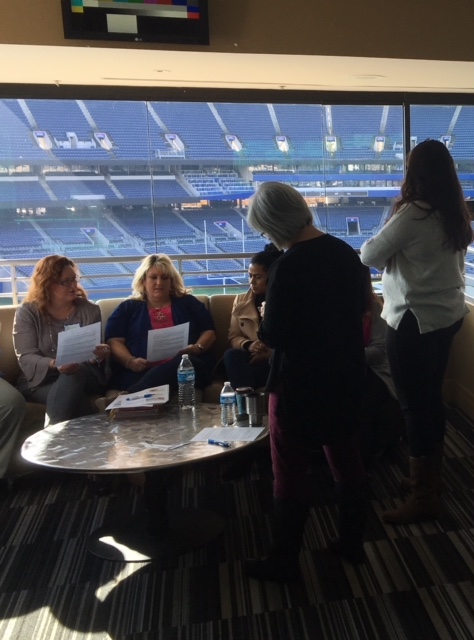
DBHDD High Fidelity Wraparound Training at GSU Stadium.
DBHDD Management Academy Cohort #9
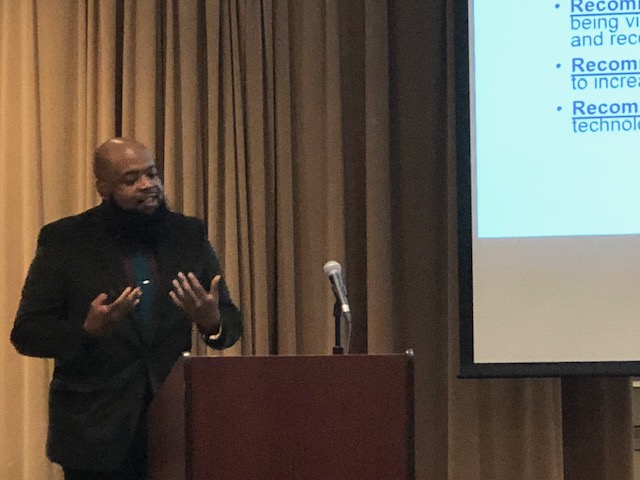
Adrian Johnson present his team’s long-term recommendations at Classic Center in Athens on December 14th. 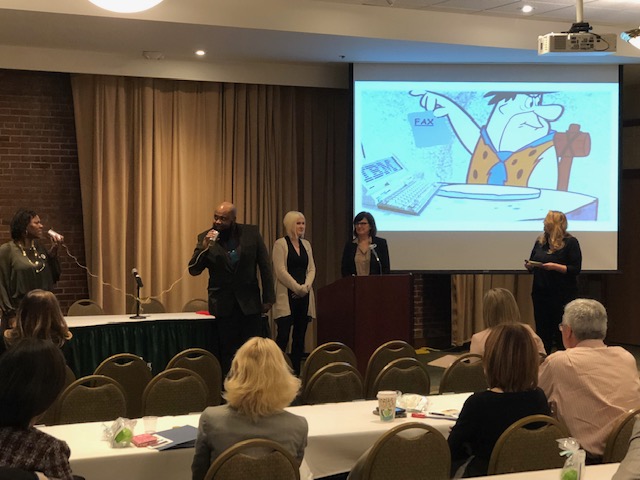
Project team on Information sharing giving their presentation at the Classic Center in Athens. 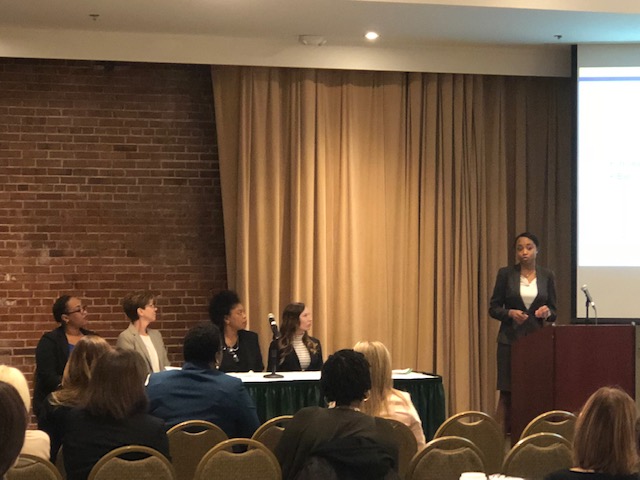
Project presentation at the Classic Center in Athens. 
DBHDD Ambassador program being presented at the Classic Center in Athens. 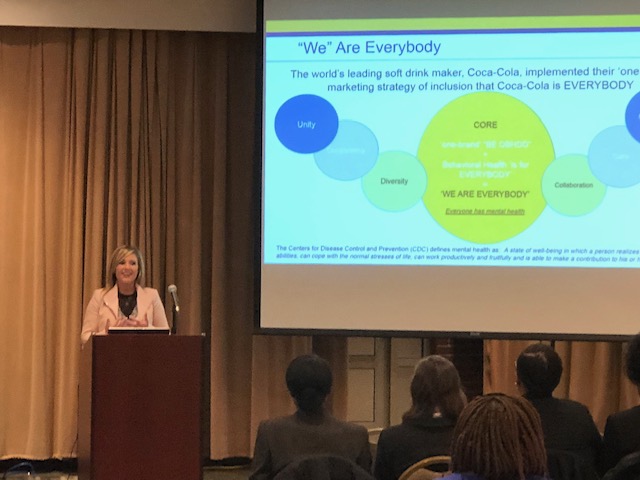
Dana Glass presenting at the Classic Center in Athens on December 14th. 
Tameka Parks presenting at the Management Academy on December 14th at the Classic Center in Athens. 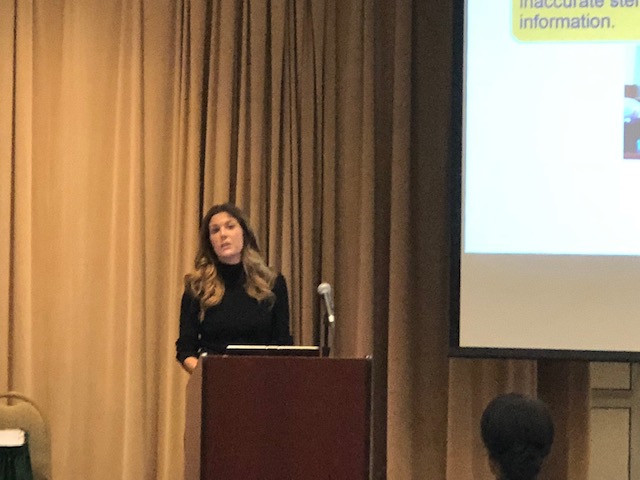
Julie Hatcher presenting at the DBHDF Management Academy. 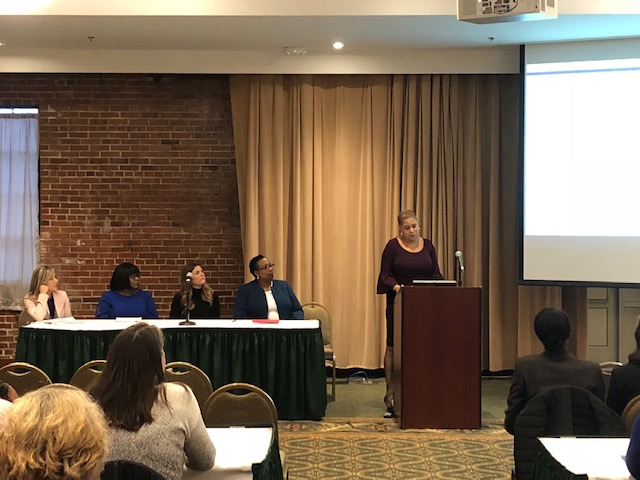
Sharon McCray presenting the “Lean Forward” project at the Classic Center in Athens on Friday, December 14, 2018. Other project team members seated at the table are L-R, Dana Glass, Tameka Parks, Julie Hatcher, & Toni Outlaw. 
Toni Outlaw presenting the “Lean Forward” Project in Athens in Friday, December 14, 2018. 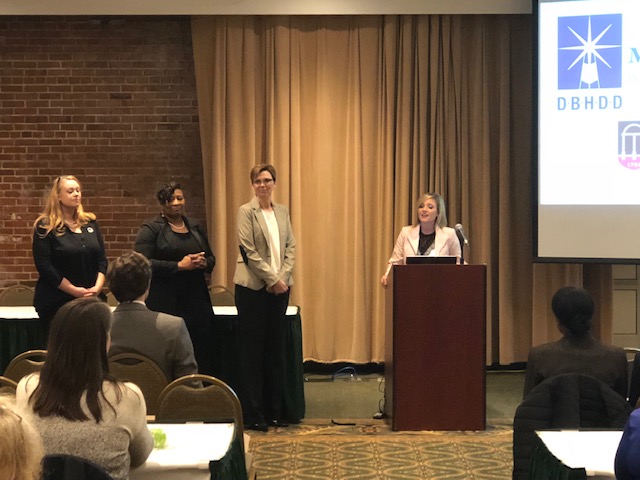
The four CSB Management Academy participants thank the Department for being included beginning with cohort #9. 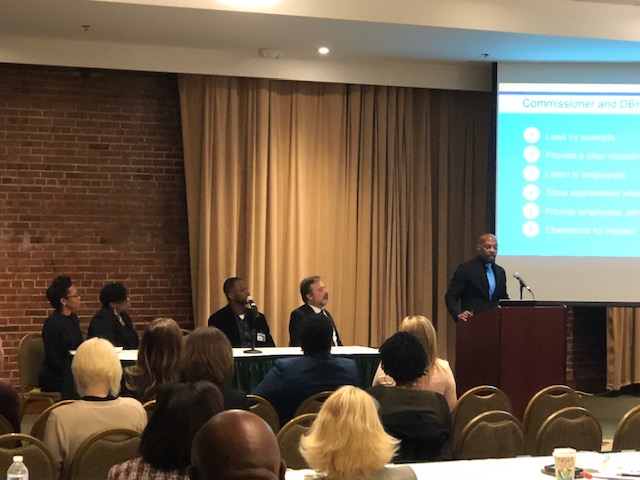
Cedric Bryant presenting his team project at the Classic Center in Athens.

This Veterans Day, as we pause to pay tribute to the men and women who bear the burden of safeguarding our freedom, we must ensure that our gratitude is extended to all veterans, including those who struggle to cope right here at home. Georgia is home to more than 700,000 veterans. Many of these men and women are strengthened by their service and are vital members of our communities. But we also know that some have difficulty adjusting. It is estimated that one in five post-9/11 veterans struggle with post-traumatic stress disorder or major depression, and one in six has a substance use disorder. In 2014, the Veterans Health Administration reported that 20 percent of suicide deaths in the U.S. occur by veterans, and approximately 22 veterans die by suicide every day. These numbers are both alarming and tragic.
As your Commissioner, I would first like to acknowledge the veterans who serve on the DBHDD team and in our provider network, including our Medical Director, Dr. Emile Risby, who retired after 31 years of service as a Colonel in the U.S. Army Reserves Medical Corps. We are so proud of our veteran service members. Second, I am pleased to share some of the work that has occurred over the last ten years to help provide Georgia’s service members, veterans, and their families with the support they need and deserve to begin their process of recovery.
In 2008, DBHDD spearheaded the Georgia Operation Enduring Freedom/Operation Iraqi Freedom Veterans State Action Plan. This brought vital stakeholders within the Armed Forces, treatment providers, and suicide prevention and recovery communities together to address the behavioral health needs of Georgia veterans. That same year, Georgia was one of six states to receive SAMHSA funding for a grant entitled “Jail Diversion and Trauma Recovery – Priority to Veterans.” Through this work, DBHDD implemented jail diversion programs for veterans with post-traumatic stress disorder and other trauma-related disorders. This pivotal work was instrumental to the now 13 Veteran Treatment Courts throughout the state. These are specialty courts created specifically for veterans who struggle with behavioral health challenges and are involved in the criminal justice system. We collaborated with various other criminal justice agencies to ensure that professionals around the state received invaluable training on the unique needs and challenges of this population.
In 2012, we partnered with the Georgia Army National Guard and scaled the STAR Behavioral Health Program to train approximately 1,800 providers throughout the state to specialize in understanding and treating military service members and their families. We continued our work with the Georgia Army National Guard and developed the Substance Abuse Treatment Initiative (SATI). SATI provided a continuum of substance abuse services which included prevention, assessment, counseling, and other treatment services to soldiers who needed assistance during challenging times. As the state behavioral health authority, we continue to lend our expertise as part of the Georgia Department of Veterans Service’s Returning Veterans Task Force and countless other statewide initiatives focusing on veterans in the criminal justice system and trauma-informed care for veterans.
I am proud of DBHDD and our providers for the work done in the past, present, and future to support our service members, veterans, and their families. As we prepare to host the 2019 Unspoken Wounds Conference: One Team. One Battle. Many Victories!, the focus will be on evidence-based practices and innovative strategies to continue our work serving the needs of this population. This conference is scheduled for March 17-19, 2019, in Columbus. This powerful three-day event brings together hundreds of stakeholders from the public and private sectors to share their expertise and their experiences working with service members, veterans, and their families. Check our website in the coming months for additional details.
To the many veterans and service members across Georgia, I offer my humble gratitude for your sacrifices and contributions to our nation. On this and every day, we support you.
Sincerely,
Judy Fitzgerald
Reminder:
Help for all Georgians is just a call away through the Georgia Crisis and Access Line (GCAL) at 1 (800) 715-4225.
Georgia was one of 3 States featured in the SAMHSA sponsored webinar, “Peer-Run Respites: Effective Alternatives to Hospitals”. Jayme Lynch, CPS, Director of the first PSWRC (2008), and Roslind Hayes, CPS, Statewide Coordinator of the PSWRCs presented to over 700 webinar participants about Georgia’s five Peer Support Wellness and Respite Centers (PSWRCs), which are operated by the Georgia Mental Health Consumer Network through a contract with the Georgia Department of Behavioral Health & Developmental Disabilities. Georgia’s PSWRCs offer 24/7 peer support over the phone; Wellness Activities 7 days a week; and up to 7 consecutive nights of respite, an alternative to psychiatric hospitalization, that uses a strengths-based approach to focus on realizing opportunities for recovery.
The PSWRCs are managed and staffed by Certified Peer Specialists who participate in on-going extensive training to insure that the center environments are welcoming, comfortable, trauma-informed, safe, inclusive, nurturing, respectful, and supportive of intentionally mutual relationships between staff and guests that allow individuals to learn new ways of seeing and relating to themselves, others and the world. Participation in center activities is free and strictly voluntary; no professional referrals are accepted. Proactive Conversation establishes peer relationships before a respite stay is needed.
To learn more about Georgia’s PSWRCs go to www.gmhcn.org. The archived webinar can be downloaded at http://nasmhpd.org/content/peer-run-respites-effective-alternatives-hospitals-0.

